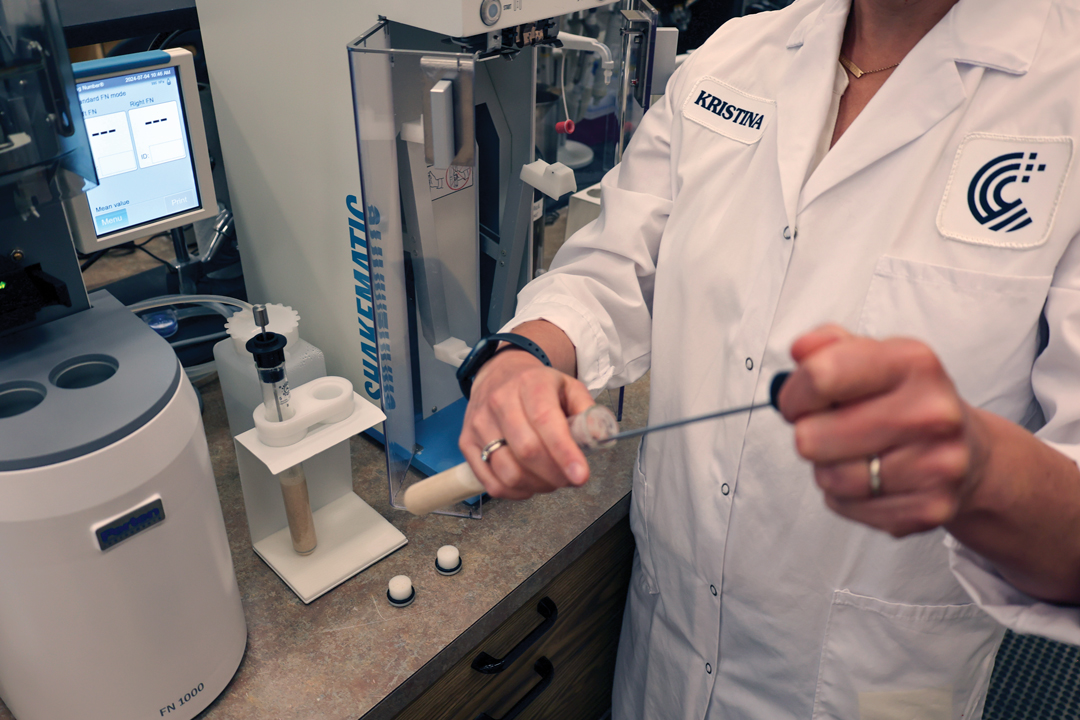CARBON TAX PUSHBACK
BY ERIN GOWRILUK
Issued in 2019 as part of the Greenhouse Gas Pollution Pricing Act, the federal carbon tax directly and unfairly punishes farmers who use propane and natural gas to dry their grain. However, I am hopeful positive change can be made on the issue.
Adding insult to injury, in the same year the carbon tax was rolled out, Canadian farmers struggled through one of the worst harvests in decades. Many faced a late snow melt the following spring when much of their crops were still in the ground. All this translated into a significantly higher need to dry grain. The carbon tax may be intended to encourage the creation of alternative energy sources, but no such avenues are available to farmers.
The carbon tax was rolled out at a rate of $20 per tonne of emission in 2019 and will increase by $10 per year until it hits $50 per tonne in 2023. However, prior to the New Year, the government announced its intention to raise the tax by $15 per year from 2024 to a maximum of $170 per tonne by 2030.
At a time of thin margins and increasing costs, Canadian farmers simply cannot afford these additional operating expenses.
But there is hope. Last February, Conservative MP Philip Lawrence introduced Bill C-206, which aims to remove the carbon tax on fuel used to dry grain and heat barns.
In Ottawa, Grain Growers of Canada (GGC) pushed heavily in support of this bill. Our messaging on this was clear and direct: Canadian farmers are partners in the fight against climate change, not an enemy to be punished.
Bill C-206 came up for debate in a parliamentary session in December 2020. The opposition parties indicated they would likely support it. In a minority Parliament, this means the bill could pass. However, it would be a slow process.
A parliamentary budget office (PBO) costing report on Bill C-206 estimated the loss of revenue to the federal government if passed would be $47 million in the 2021/22 fiscal year and close to $60 million in each of the three following years. Notably, the report was prepared under the assumption the tax would remain at $50 a tonne per year.
Based on the results of the PBO costing, we speculate the cost of on-farm fuel use could be $180 million a year by 2030. That’s straight out of farmers’ pockets and does not count the additional carbon tax costs passed on to the farmer for inputs and transportation.
Canadian farmers are on the front line of climate change and realize it is important to mitigate its impact and do their part to reduce emissions. They also strive to adapt their agronomic practices and effectively steward the land they will pass on to the next generation. They want to be part of the solution.
This is why we see so many farmers today voluntarily adopt innovative technologies and sustainable practices that exert less impact on soils and the environment. To date, the federal government has failed to fully recognize and acknowledge this.
Last fall’s throne speech mentioned that farmers and ranchers would be recognized as key partners in the fight against climate change, emissions reduction and the building of resilience. We were pleased with this verbal support, but the sentiment has not been reflected in action.
So, what do we do now? We will continue to push all political parties to support Bill C-206 and to better quantify the impacts of the escalating carbon tax. We will continue to engage with government and demonstrate the necessity of immediate exemptions.
It’s an uphill battle, but, again, I am optimistic. We have done the background work. We have laid the foundation. We have gotten our message across and shown the impact this tax has had, and will have, on Canadian farms of all sizes.
We know this is an issue that the government can’t ignore and GGC will ensure it stays on the front burner.
Erin K. Gowriluk is the executive director of the Grain Growers of Canada.







Comments